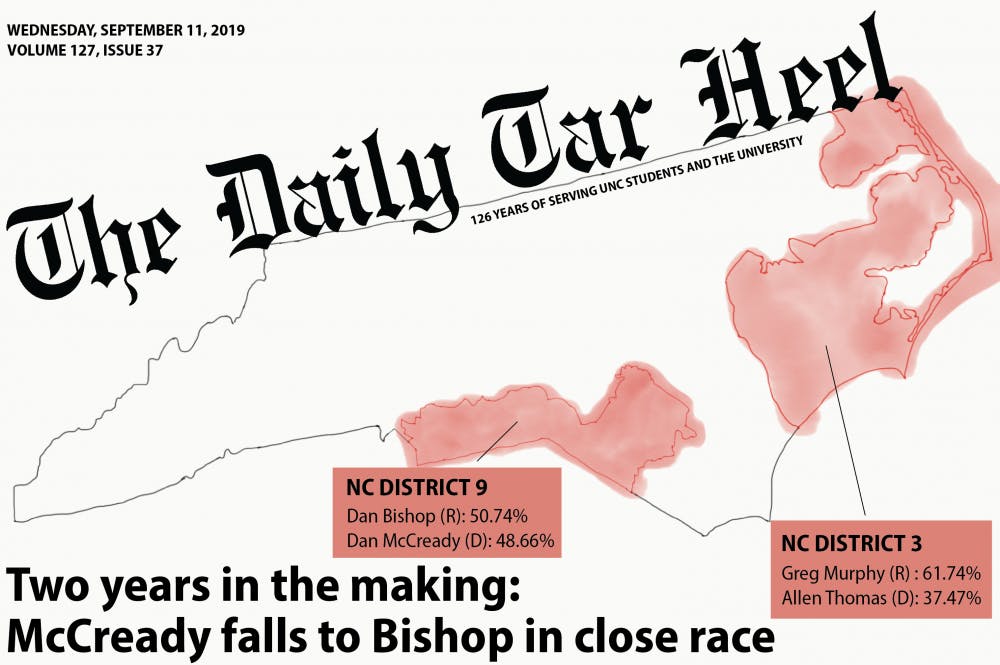Two of North Carolina’s 13 U.S. House districts held special elections last night.
A special election was called for North Carolina’s third congressional district after Republican Rep. Walter Jones Jr. died in January. Democratic nominee and former mayor of Greenville, Allen Thomas, was defeated by N.C. Rep. Greg Murphy, R-District 9.
The special election in North Carolina’s ninth congressional district was called after an investigation by the N.C. State Board of Elections found evidence of a “coordinated” and “unlawful” election fraud scheme by the campaign of 2018 Republican nominee, Mark Harris. N.C. Sen. Dan Bishop, R-District 39, narrowly defeated Democrat Dan McCready, a former Marine and solar energy entrepreneur by two points.
After the findings of its investigation, NCSBE officials were reported to be on the ground observing the voting process.
“In Bladen County where there was a problem, I think the State Board of Elections has staff on site who are assisting with handling absentee ballots,” said Gerry Cohen, a member of the Wake County Board of Elections and former special counsel to the General Assembly. “Because the number of absentee ballots is way way off from 2018, so I think that the State Elections Board has that under a microscope. So I don’t think there are any problems going on with that this year."
The unusual nature of the special elections lead to lower turnout. Overall turnout dropped from over 50 percent in 2018 to just 26 percent in the 2019 races.
“Since the state went to the current system of filling congressional vacancies right after World War II, this is the first time there’s been a special election for Congress in an odd numbered year,” Cohen said. “So this is all very unusual. North Carolina does not have very many special elections like a lot of other states do, so this is very, very unusual."
Cohen also said he thinks the competitiveness and controversy in the ninth district has led to greater voter engagement compared to the third district.
“Although there’s been a lot of media attention to this because of the fraud last year, now there’s very different levels of interest in the ninth and third districts. I believe that in the ninth district they had around 89,000 early and mail votes, and in the third district it was something like 36,000," he said. "They have the same populations obviously, but there’s only half as many votes cast in the third district because there isn’t all these millions of dollars being spent and there isn’t as much publicity."



